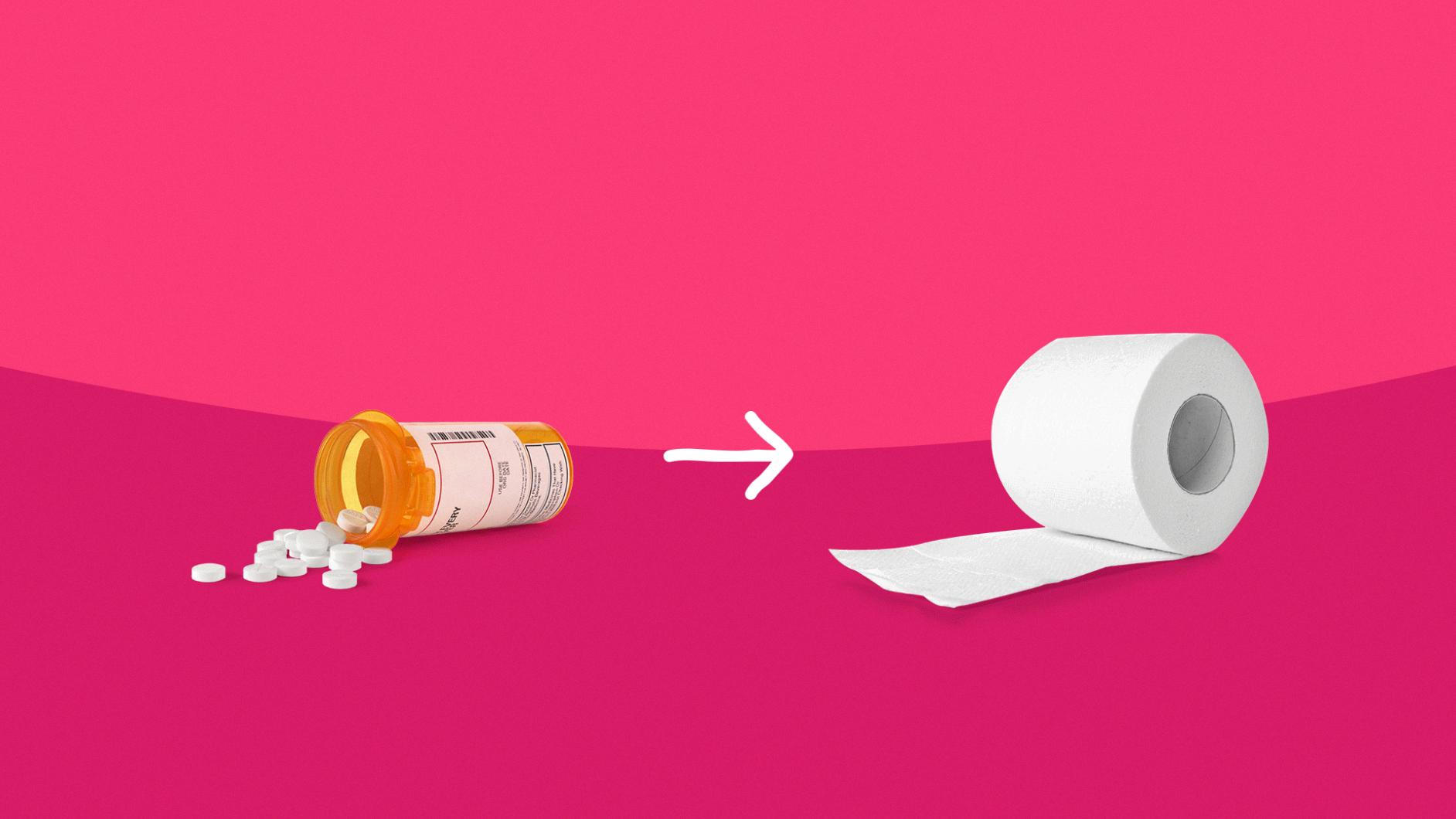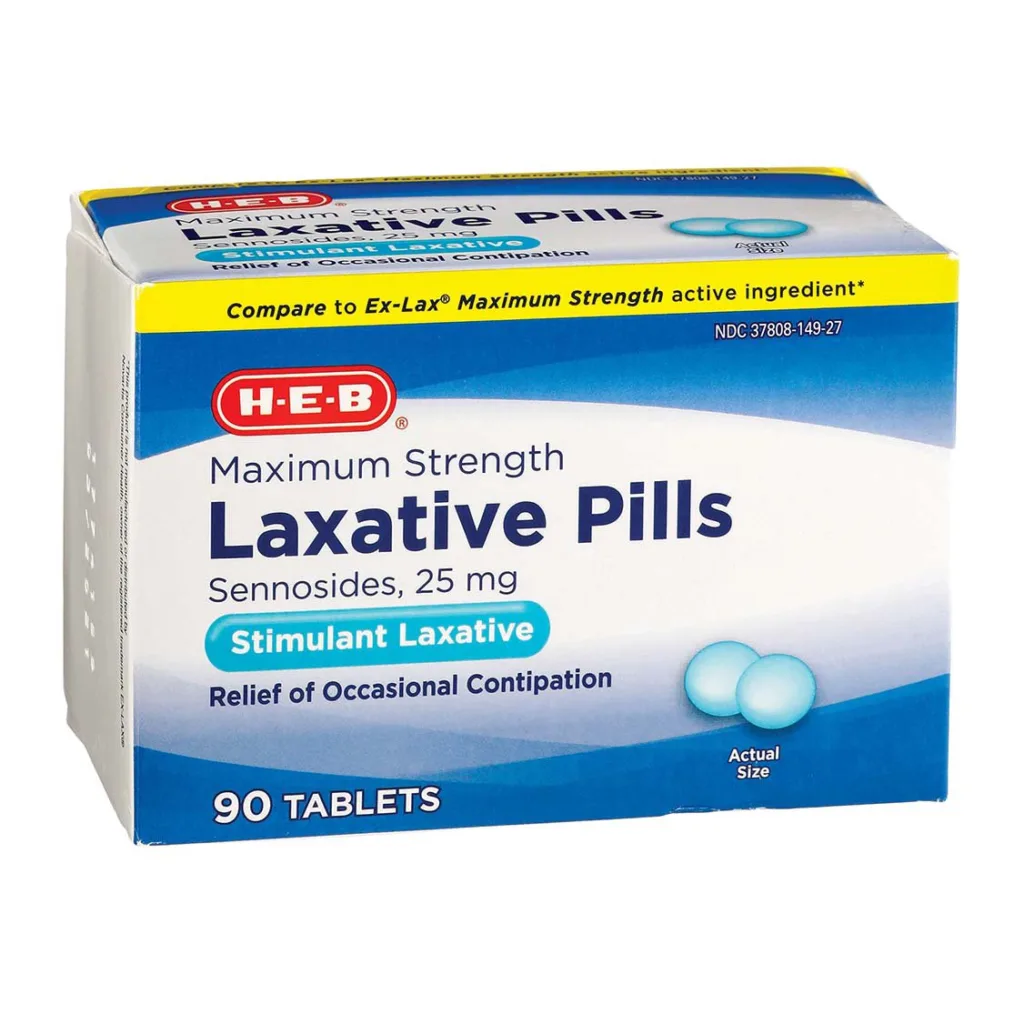Laxatives are a type of medication that is commonly used to treat constipation. They work by either drawing water into the gut or by stimulating the muscles of the intestines to contract. While they can be effective in relieving constipation, it is important to understand how long they take to wear off and how to avoid potential side effects.
Most laxatives take anywhere from six to 72 hours to take effect. Once bowel movements are produced, the amount of laxative in the body will naturally reduce, though the laxative effects could linger for a couple of days after the initial dose. It is important to note that taking too much of a laxative can cause diarrhea, whih can lead to dehydration and other complications. Therefore, it is important to follow the recommended dosage and not to take laxatives for extended periods of time.
If you are experiencing constipation, there are other things you can do to help promote more normal bowel movements. Eating regularly, optimally three times a day, can help regulate your digestive system. Eating foods that naturally promote more normal bowel movements, such as whole-grain breads and cereals, crackers, wheat bran, or foods with wheat bran added, can also be helpful. Vegetables and fruits are also great options to promote normal bowel function.
It is also important to be mindful of potential side effects of laxatives. Symptoms can last from 1 to 3 weeks, or occasionally longer, and include fluid retention, constipation, bloating, and temporary weight gain (from water and stool). If you experience any of these symptoms, it is important to consult with your healthcare provider.
In the long run, it is important to remember that your symptoms will improve, and you will be much healthier and feel better when you are not taking laxatives. It is important to use laxatives only as directed and to be mindful of potential side effects. By eating a healthy diet and practicing good bowel habits, you can help promote more normal bowel movements and avoid the need for laxatives altogether.
Duration of Diarrhea After Taking a Laxative
When taking a laxative, diarrhea can be a common side effect. The duration of diarrhea after taking a laxative can vary depending on the type of laxative taken and the individual’s body. Generally, diarrhea should not last more than a couple of days.
Stimulant laxatives, such as bisacodyl and senna, work by stimulating the muscles in the intestines to push stool through the colon. These types of laxatives can cause diarrhea witin a few hours of taking them, and diarrhea may last for up to 24 hours.
Osmotic laxatives, such as magnesium citrate and polyethylene glycol, work by drawing water into the colon to soften stool and make it easier to pass. These types of laxatives can also cause diarrhea, which may last for up to 48 hours.
Bulk-forming laxatives, such as psyllium and methylcellulose, work by adding bulk to stool and making it easier to pass. These types of laxatives are less likely to cause diarrhea, but if diarrhea does occur, it should not last more than a day.
If diarrhea lasts longer than a few days, or if it is accompanied by other symptoms such as fever or abdominal pain, it is important to seek medical attention as it may be a sign of a more serious condition. It is also important to stay hydrated while experiencing diarrhea, as it can lead to dehydration. Drink plenty of fluids and consider electrolyte replacement drinks to replenish lost fluids and minerals.

Source: singlecare.com
Stopping the Effects of Laxatives
Laxatives are commonly used to alleviate constipation, but prolonged use can have harmful effects on the digestive system. Fortunately, there are ways to stop the effects of laxatives and promote more normal bowel function.
Firstly, it is important to gradually reduce the use of laxatives. Suddenly stopping the use of laxatives can result in constipation or other unpleasant symptoms. Instead, gradually reduce the dosage util it is no longer needed.
Secondly, it is important to stay hydrated. Laxatives can dehydrate the body, leading to further digestive problems. Drink plenty of water and other fluids to keep the body hydrated.
Thirdly, it is important to eat a balanced diet. Eat foods that are high in fiber, such as whole-grain breads and cereals, crackers, wheat bran, vegetables, and fruits. These foods promote normal bowel function and can help alleviate constipation.
Fourthly, it is important to exercise regularly. Exercise can help stimulate the digestive system and promote regular bowel movements.
Lastly, it may be helpful to consult a healthcare professional. A doctor or nutritionist can provide guidance on how to stop the effects of laxatives and promote more normal bowel function. They can also recommend dietary changes or supplements that may help alleviate constipation.
To summarize, stopping the effects of laxatives involves gradually reducing the use of laxatives, staying hydrated, eating a balanced diet, exercising regularly, and potentially consulting a healthcare professional. By following these steps, individuals can promote more normal bowel function and avoid the harmful effects of laxatives.
Returning to Normal After Taking Laxatives
The duration of time it takes to return to normal ater taking laxatives can vary depending on several factors. Generally, symptoms can last for around 1 to 3 weeks, but in some cases, it may take longer.
Laxatives work by stimulating the bowel muscles to push stool out of the body. However, long-term use can lead to dependence and damage to the colon, causing a decrease in bowel movements and an increase in constipation symptoms.
When you stop taking laxatives, your body needs time to adjust to producing bowel movements naturally. During this period, you may experience fluid retention, constipation, bloating, and temporary weight gain due to water and stool retention.
The good news is that in the long run, your symptoms will improve, and you will be much healthier and feel better when you are not taking laxatives. It’s essential to drink plenty of water, eat a healthy diet, and exercise regularly to help your body return to normal and avoid constipation in the future.
It may take a few weeks or longer to return to normal after taking laxatives, but with patience and healthy lifestyle habits, you can regain regular bowel movements and feel better overall.
Do Laxatives Cause Diarrhea?
Laxatives are medications or substances that are used to stimulate bowel movements in individuals who are experiencing constipation or difficulty passing stool. These medications work by eithr drawing water into the gut or by causing the muscles of the intestines to contract.
When taken as directed, laxatives can be helpful in relieving constipation and promoting regularity. However, taking too much of a laxative can cause diarrhea, which can be a problem.
Excessive use of laxatives can lead to dehydration, electrolyte imbalances, and other complications. It is important to follow the recommended dosage and speak with a healthcare provider before using laxatives regularly.
There are different types of laxatives, including stimulants, osmotics, and stool softeners. Each type works differently and may have different side effects. Some common side effects of laxatives include abdominal cramping, bloating, and gas.
To avoid diarrhea and other adverse effects, it is essential to use laxatives as directed and only when necessary. Increasing water and fiber intake, as well as regular exercise, can also help promote regular bowel movements and prevent constipation.
While laxatives are designed to stimulate bowel movements and relieve constipation, taking too much of a laxative can lead to diarrhea and other complications. Therefore, it is crucial to use these medications as directed and only when necessary, and to speak with a healthcare provider before using them regularly.

Conclusion
While laxatives can be helpful in relieving constipation, they should not be relied on as a long-term solution. It’s important to eat a healthy diet that promotes normal bowel movements and to avoid taking too much of a laxative, which can cause diarrhea and other unpleasant side effects. If you’re struggling with constipation, it’s best to talk to your doctor or a healthcare professional to find the best treatment plan for you. Remember, taking care of your digestive health is an important part of overall wellness.
